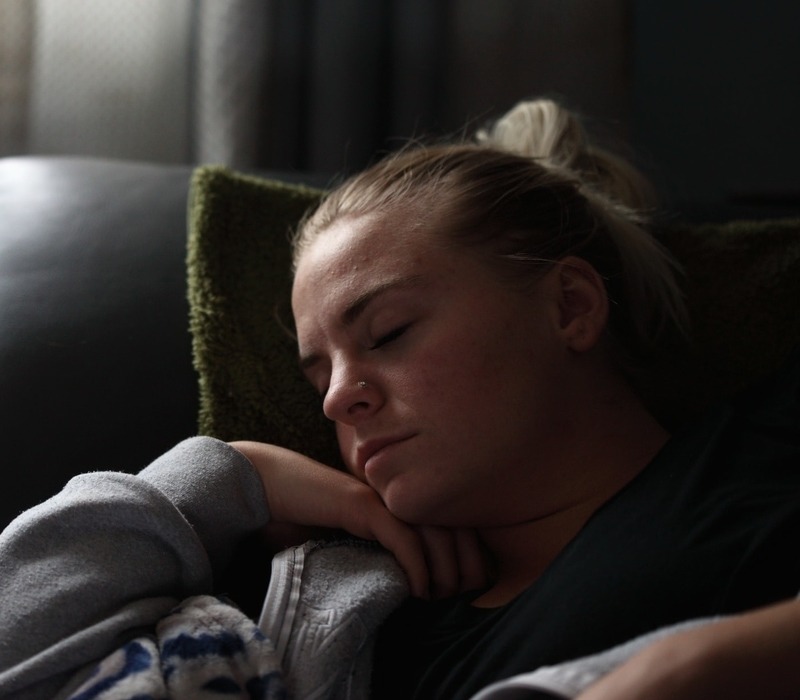If you’ve ever experienced insomnia, then you know how disruptive it can be to your life. Insomnia affects everything from mood to physical health to cognitive functioning. But insomnia is both a condition that is misunderstood and one that people often struggle to cope with. This article outlines the telltale signs of insominia and also offers practical, evidence-based insomnia tips to deal with continual sleepless nights.
What Is Insomnia?

Insomnia is a sleep disorder characterized by difficulty falling asleep, staying asleep, and feeling refreshed from sleep. It is the most common type of sleep disorder, with around a third of all adults reporting insomnia symptoms and six to ten percent having severe enough symptoms to be diagnosed with an insomnia disorder. If you fall into the latter category, it means you have been struggling with sleep at least three nights a week for the past three months and that the insomnia is causing major distress or affecting your ability to function.
The Causes of Insomnia
To overcome insomnia, you ideally want to address the root cause rather than just try to manage the symptoms. Insomnia can have many causes, including:
- Underlying mental health issues, such as depression or anxiety
- High levels of stress
- Substance use
- High caffeine intake
- Using devices late at night
- Overwork
- Physical pain

Insomnia tips that address these underlying causes of poor sleep will often involve changes to lifestyle, diet, work, and increasing the psychological support you have. These roots of insomnia should not be ignored, as the condition increases the risk of a range of medical and mental health conditions, makes accidents more likely, and leads to a shortened life expectancy.
Insomnia Tips that Will Help
Struggling to fall asleep and stay asleep may not feel like such a big problem. But when these difficulties with sleep persist, the impact becomes noticeable. You may find yourself always feeling tired, low in energy, and irritable. You may be struggling with work and desperate for a good night’s sleep but seemingly unable to achieve it. Fortunately, however, there are many science-backed insomnia tips that will increase your chances of high-quality sleep. These include:
- Increase your exposure to bright light during the day, which can involve exposing yourself to sunlight or – if it’s wintertime with little sunlight – using light therapy.
- Reduce blue light exposure in the evening – this means putting away your devices close to your bedtime, as they emit large amounts of blue light (which basically tells your body it’s daytime and so increases wakefulness).
- Avoid caffeine late in the day.
- Try to go to sleep and wake up the same time each day.
- Avoid alcohol.
- Optimize your bedroom for sleep – this means keeping it cool, dark, and quiet.
- Avoid eating late in the evening, especially spicy and high-carb food.
- Relax your mind in the evening, such as through reading, meditation, or doing absolutely nothing (known as niksen).
- Take a hot bath or shower. (This, counterintuitively, helps to cool your core body temperature, better preparing your body for sleep.)
- Use a comfortable mattress and pillow.
- Exercise regularly but not in the evening, as this will keep your heart rate up, making it harder to fall asleep.

Lack of sleep can be a difficult condition to deal with. Even when you put in place many of the above insomnia tips, you may still find your mind active and unable to rest, despite feeling physically tired. When this happens night after night, it is understandable to worry about the effects of sleep deprivation, about how this will affect the next day. But such thoughts will only worsen insomnia.
The best attitude to adopt in this situation is one of acceptance. Know that insomnia will pass and try to accept that you just can’t sleep. When you stop fighting insomnia and excessively worrying about it, you will naturally find it easier to doze off. Are you thinking your alarm could be the culprit? Read on to learn the pros and cons of setting an alarm each morning.

